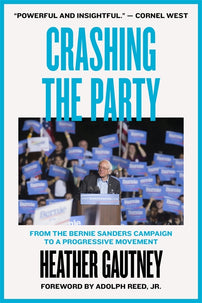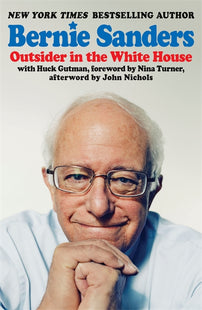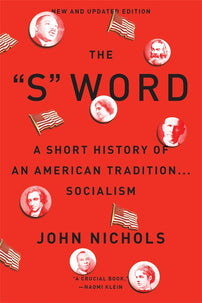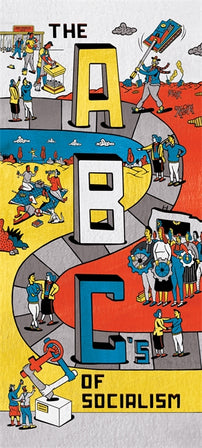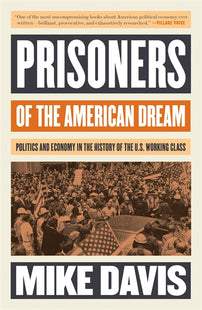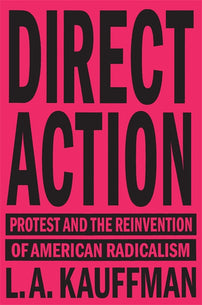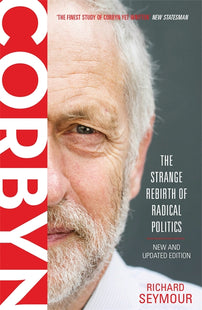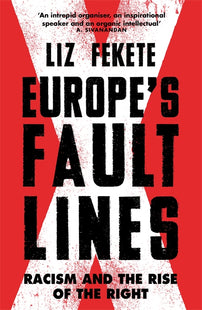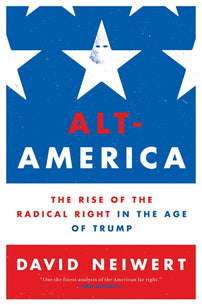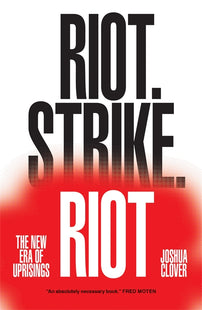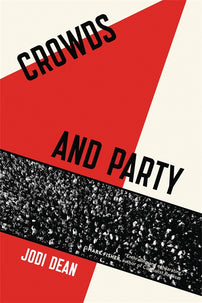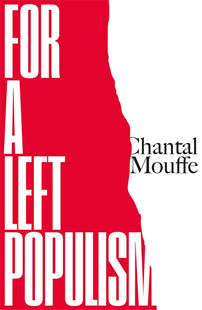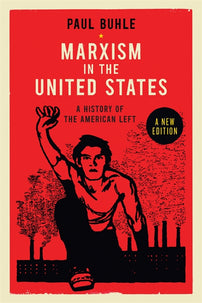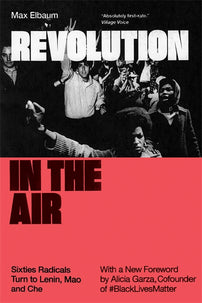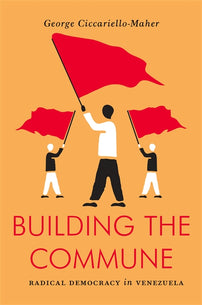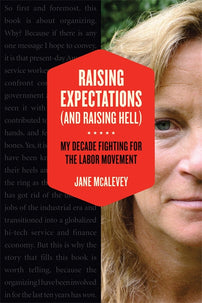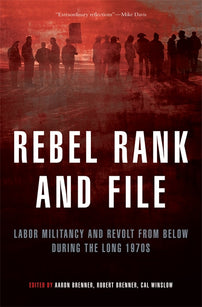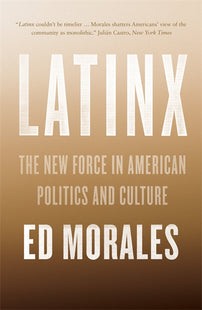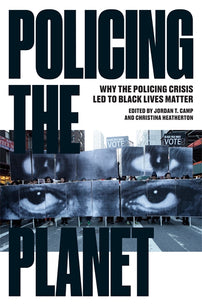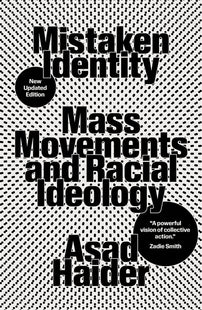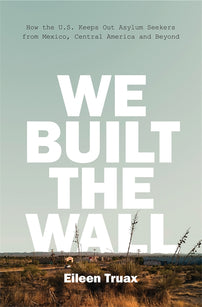Socialists and Electoral Politics in the Trump Era
A reading list on working-class power, elections, and left-wing strategy.

With democratic socialists like Alexandria Ocasio-Cortez and Rashida Tlaib recently sworn into office and the presidential primary season beginning in earnest, socialists across the United States are debating how to approach, understand, and participate in the ongoing left electoral insurgency. But what is the relationship between socialist electoral campaigns and working-class power? What lessons can we draw from historical attempts by socialist and working-class parties around the world to win electoral power, and what is specific about the history of socialists and electoral politics in the US? And, most importantly, what does this history mean about the way forward for today's growing socialist movement?
Socialist Strategy and Electoral Politics is a FREE ebook, a joint project of Jacobin, Haymarket Books, and Verso. Featuring Keeanga-Yamahtta Taylor, Nick Estes, Kshama Sawant, Leo Panitch, Sam Gindin, Aziz Rana, and more, the collection brings together a spectrum of reflections on these questions with reference to a variety of organizing contexts and political horizons.
This Socialists and Electoral Politics reading list includes key contributions on contemporary politics, socialists and elections, the recent rise of the far-right, working-class history, and struggles against oppression.
[book-strip index="1" style="buy"]In this collection of new and previously published essays, activists and scholars from across the socialist left seek to grapple with politics in the wake of the election of Donald Trump and the surprising popularity of Bernie Sanders's primary campaign in 2016, as well as the failure of center-left parties across the world to halt the ascent of right-wing populism. They refuse to be satisfied by asking, “Who can we get elected to office?” Instead, they consider how and why socialists should participate in the electoral arena.
[book-strip index="2" style="buy"]Longtime author and activist Heather Gautney was a Policy Fellow in Sanders’s Washington, DC, office and a volunteer researcher and organizer on his presidential campaign. In reviewing what enabled Sanders to reach out to an unprecedented number with a socialist message—and what stalled his progress—she draws lessons on the prospects and perils of building a progressive movement in the United States.
[book-strip index="3" style="buy"]In this book, Sanders tells the story of a passionate and principled political life. He describes how, after cutting his teeth in the Civil Rights movement, he helped build a grassroots political movement in Vermont, making it possible for him to become the first independent elected to the US House of Representatives in forty years. The story continues into the US Senate and through the dramatic launch of his presidential campaign.
[book-strip index="4" style="buy"]During the Cold War it became a dirty word in the United States, but “socialism” runs like a red thread through the nation’s history, an integral part of its political consciousness since the founding of the republic. In this unapologetic corrective to today’s collective amnesia, John Nichols calls for the proud return of socialism in American life. He recalls the reforms lauded by Founding Father Tom Paine; the presence of Karl Marx’s journalism in American letters; the left leanings of founders of the Republican Party; the socialist politics of Helen Keller; the progressive legacy of figures like Chaplin and Einstein. Now in an updated edition, The “S” Word makes a case for socialist ideas as an indispensable part of American heritage. A new final chapter considers the recent signs of a leftward sea change in American politics in the face of increasing and historic levels of inequality.
[book-strip index="5" style="buy"]A slim, accessible, inexpensive, irreverent introduction to socialism by the writers of Jacobin magazine
Contributors include Nicole Aschoff, Alyssa Battistoni, Jonah Birch, Vivek Chibber, Danny Katch, Chris Maisano, Nivedita Majumdar, Michael A. McCarthy, Joseph M. Schwartz, Bhaskar Sunkara, Keeanga-Yamahtta Taylor, Adaner Usmani and Erik Olin Wright.
[book-strip index="6" style="buy"]Prisoners of the American Dream is Mike Davis’s brilliant exegesis of a persistent and major analytical problem for Marxist historians and political economists: Why has the world’s most industrially advanced nation never spawned a mass party of the working class? This series of essays surveys the history of the American bourgeois democratic revolution from its Jacksonian beginnings to the rise of the New Right and the re-election of Ronald Reagan, concluding with some bracing thoughts on the prospects for progressive politics in the United States.
[book-strip index="7" style="buy"]L.A. Kauffman's lively and elegant history is propelled by hundreds of candid interviews conducted over a span of decades. Direct Action showcases the voices of key players in an array of movements – environmentalist, anti-nuclear, anti-apartheid, feminist, LGBTQ, anti-globalization, racial-justice, anti-war, and more – across an era when American politics shifted to the right, and a constellation of decentralized issue- and identity-based movements supplanted the older ideal of a single, unified left.
[book-strip index="8" style="buy"]In office as President of the United States, Donald J. Trump is undoubtedly a menace, but he isn’t a surprise. He embodies the spirit of an age of folly abandoned to conspicuous consumption of vanity and greed. A self-glorifying photo-op, Trump is made to the measure of an infotainment media in which presidential candidates are game show contestants brought to judgment on election day before the throne of cameras by whom and for whom they are produced.
[book-strip index="9" style="buy"]With heart-wrenching reporting and incisive analysis, In These Times magazine has charted a staggering rise in inequality and the fall of the American middle class. Here, in a selection from four decades of articles by investigative reporters and progressive thinkers, is the story of our age. It is a tale of shockingly successful corporate takeovers stretching from Reagan to Trump, but also of brave attempts to turn the tide, from the Seattle global justice protests to Occupy to the Fight for 15.
[book-strip index="10" style="buy"]Richard Seymour tells the story of how Corbyn’s rise was made possible by the long decline of Labour and by a deep crisis in British democracy. He shows how Corbyn began the task of rebuilding Labour as a grassroots party, with a coalition of trade unionists, young and precarious workers, students and ‘Old Labour’ pugilists, who then became the biggest campaigning army in British politics. Utilizing social media, activists turned the media’s Project Fear on its head and broke the ideological monopoly of the tabloids. After the election, with all the artillery still ranged against Corbyn, and with all the weaknesses of the Left’s revival, Seymour asks what Corbyn can do with his newfound success.
[book-strip index="11" style="buy"]An expansive investigation of the ways in which a newly configured right interconnects with anti-democratic and illiberal forces at the level of the state, Europe’s Fault Linesprovides much-needed answers, revealing some uncomfortable truths.
[book-strip index="12" style="buy"]What does fascism mean at the beginning of the twenty-first century? When we say the word, our memory goes back to the years right between the two world wars and envisions a dark landscape of violence, dictatorships, and genocide. These images spontaneously surface in the face of the rise of the radical right, racism, xenophobia, islamophobia and terrorism, the last of which is often depicted as a form of “Islamic fascism’.
[book-strip index="13" style="buy"]Investigative reporter David Neiwert has been tracking extremists for more than two decades, and here he provides a deeply reported and authoritative report on the background, mindset, and growth on the ground of far-right movements across the country. The product of years of reportage, and including the most in-depth investigation of Trump’s ties to far-right figures, this is a crucial book about one of the most disturbing sides of the US.
[book-strip index="14" style="buy"]From early wage demands to recent social justice campaigns pursued through occupations and blockades, Clover connects these protests to the upheavals of a sclerotic economy in a state of moral collapse. Historical events such as the global economic crisis of 1973 and the decline of organized labor, viewed from the perspective of vast social transformations, are the proper context for understanding these eruptions of discontent. As social unrest against an unsustainable order continues to grow, this valuable history will help guide future antagonists in their struggles toward a revolutionary horizon.
[book-strip index="15" style="buy"]Crowds and Party channels the energies of the riotous crowds who took to the streets in the past five years into an argument for the political party. Rejecting the emphasis on individuals and multitudes, Jodi Dean argues that we need to rethink the collective subject of politics. When crowds appear in spaces unauthorised by capital and the state. In Crowds and Party, Dean argues that previous discussions of the party have missed its affective dimensions, the way it operates as a knot of unconscious processes and binds people together. Dean shows how we can see the party as an organisation that can reinvigorate political practice.
[book-strip index="16" style="buy"]We are currently witnessing in Western Europe a “populist moment” that signals the crisis of neoliberal hegemony. The central axis of the political conflict will be between right- and left-wing populism. By establishing a frontier between “the people” and “the oligarchy,” a left–populist strategy could bring together the manifold struggles against subordination, oppression and discrimination.
[book-strip index="17" style="buy"]Brimming over with archival finds and buoyed by the recollections of witnesses and participants in the radical movements of decades past, Marxism in the United Statesincludes fascinating accounts of the immigrant socialism of the nineteenth century, the formation of the CPUSA in the wake of the Bolshevik Revolution, the rise of American communism and of the hugely influential Popular Front in the 1920s and ’30s, the crisis and split of the ’50s, and the revival of Marxism in the ’60s and ’70s.
[book-strip index="18" style="buy"]The sixties were a time when radical movements learned to embrace twentieth-century Marxism. Revolution in the Air is the definitive study of this turning point, and examines what the resistance of today can learn from the legacies of Lenin, Mao and Che.
[book-strip index="19" style="buy"]Following the locust years of the neo-liberal revolution, social democracy was the great victor at the fin-de-siècle elections. Today, parties descended from the Second International hold office throughout the European Union, while the Right appears widely disorientated by the dramatic “modernisation” of a political tradition dating back to the nineteenth century.
[book-strip index="20" style="buy"]In Venezuela, poor barrio residents arose in a mass rebellion against neoliberalism, ushering in a government that institutionalized the communes already forming organically. In Building the Commune, George Ciccariello-Maher travels through these radical experiments, speaking to a broad range of community members, workers, students and government officials. Assessing the projects’ successes and failures, Building the Commune provides lessons and inspiration for the radical movements of today.
[book-strip index="21" style="buy"]Jane McAlevey is famous—and notorious—in the American labor movement as the hard-charging organizer who racked up a string of victories at a time when union leaders said winning wasn’t possible. Then she was bounced from the movement, a victim of the high-level internecine warfare that has torn apart organized labor. In this engrossing and funny narrative—that reflects the personality of its charismatic, wisecracking author—McAlevey tells the story of a number of dramatic organizing and contract victories, and the unconventional strategies that helped achieve them.
[book-strip index="22" style="buy"]The hidden story of the 1970s insurgency from below, against employers and bureaucrats.
Often considered irredeemably conservative, the US working class actually has a rich history of revolt. Rebel Rank and File uncovers the hidden story of insurgency from below against employers and union bureaucrats in the late 1960s and 1970s.
[book-strip index="23" style="buy"]In this groundbreaking discussion, Ed Morales explains how Latinx political identities are tied to a long Latin American history of mestizaje—“mixedness” or “hybridity”—and that this border thinking is both a key to understanding bilingual, bicultural Latin cultures and politics and a challenge to America’s infamously black–white racial regime. This searching and long-overdue exploration of the meaning of race in American life reimagines Cornel West’s bestselling Race Matters with a unique Latinx inflection.
[book-strip index="24" style="buy"]Combining firsthand accounts from activists with the research of scholars and reflections from artists, Policing the Planet traces the global spread of the broken-windows policing strategy, first established in New York City under Police Commissioner William Bratton. It’s a doctrine that has vastly broadened police power the world over—to deadly effect.
[book-strip index="25" style="buy"]Whether class or race is the more important factor in modern politics is a question right at the heart of recent history’s most contentious debates. Among groups who should readily find common ground, there is little agreement. To escape this deadlock, Asad Haider turns to the rich legacies of the black freedom struggle. Drawing on the words and deeds of black revolutionary theorists, he argues that identity politics is not synonymous with anti-racism, but instead amounts to the neutralization of its movements. It marks a retreat from the crucial passage of identity to solidarity, and from individual recognition to the collective struggle against an oppressive social structure.
[book-strip index="26" style="buy"]We Built the Wall is an immersive, engrossing look at the new front in the immigration wars. It follows the gripping stories of people like Saúl Reyes, forced to flee his home after a drug cartel murdered several members of his family, and Delmy Calderón, a forty-two-year-old woman leading an eight-woman hunger strike in an El Paso detention center. Truax tracks the heart-wrenching trials of refugees like Yamil, the husband and father who chose a prison cell over deportation to Mexico, and Rocío Hernández, a nineteen-year-old who spent nearly her entire life in Texas and is now forced to live in a city where narcotraffickers operate with absolute impunity.

